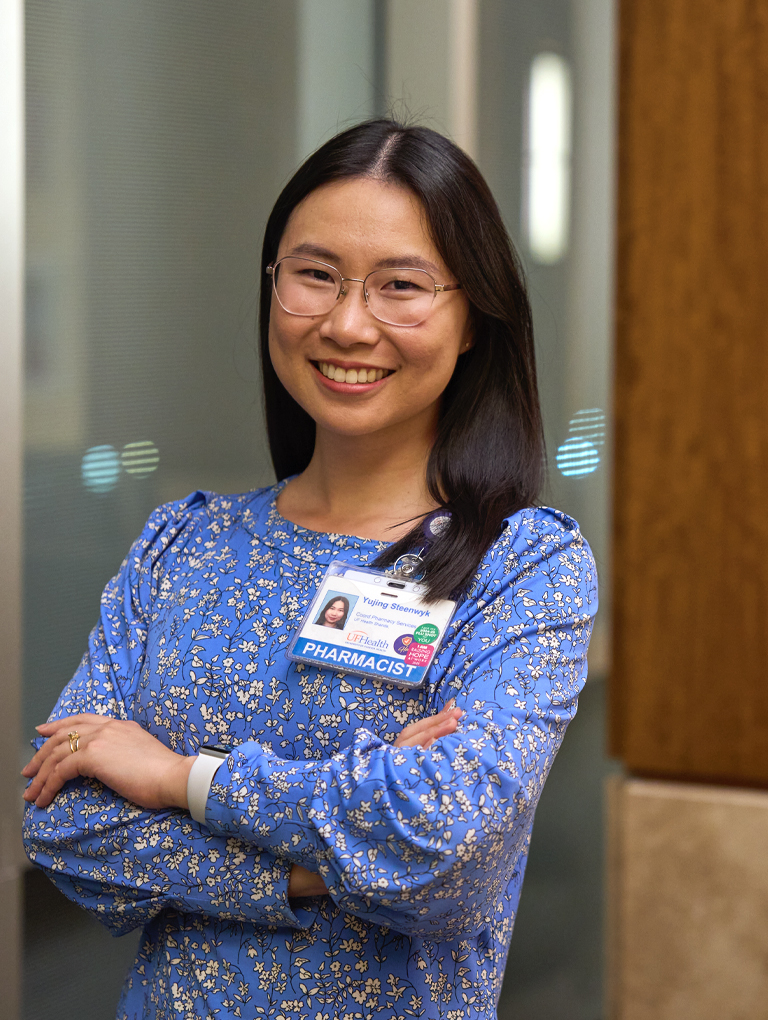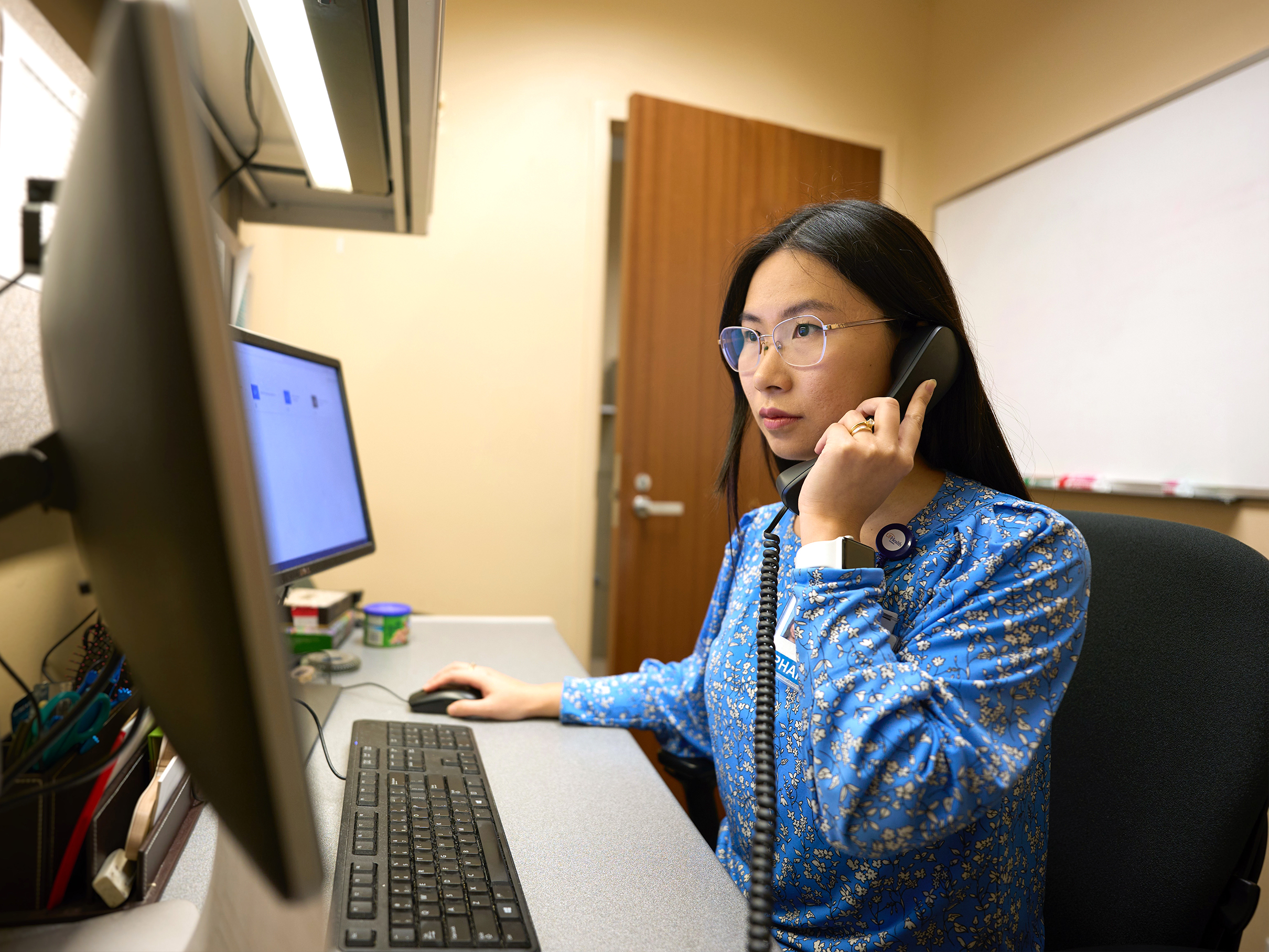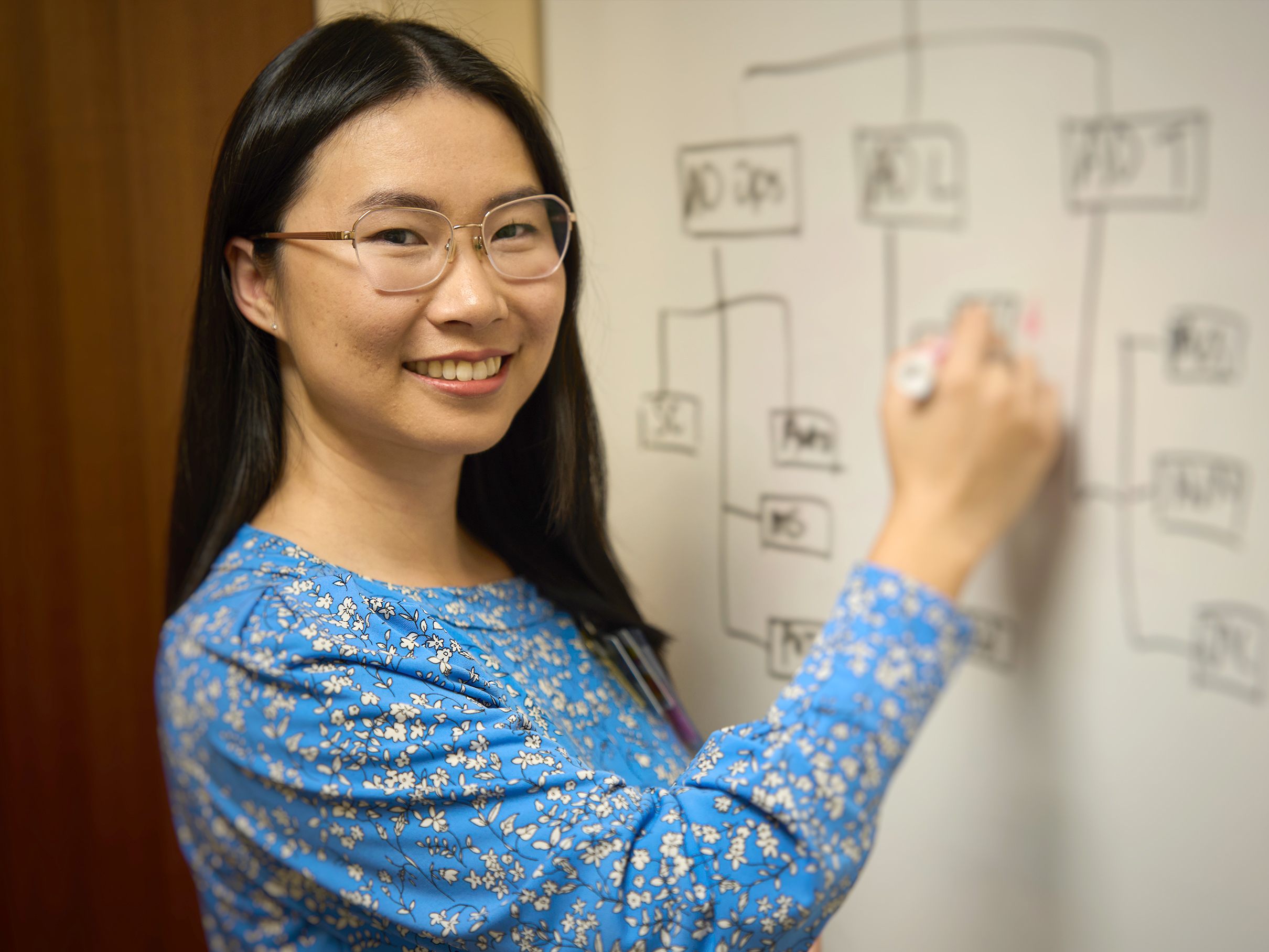


PHARMACISTS UP CLOSE
Yujing Steenwyk,
PharmD, MS, BCPS
“My team and I are the medication experts on our patients’ care team. Some of us are right there at bedsides daily and then there are others, like me, that are making an impact through the administrative side of pharmacy.”
-Dr. Yujing Steenwyk
At UF Health Shands Hospital, Yujing Steenwyk leads a team of 20 health-system pharmacists who care for patients admitted to their hospital.
“My team and I are the medication experts on our patients’ care team. Some of us are right there at bedsides daily and then there are others, like me, that are making an impact through the administrative side of pharmacy.”
My team and I are the medication experts on our patients’ care team. Some of us are right there at bedsides daily and then there are others, like me, that are making an impact through the administrative side of pharmacy.”
One of Yujing’s biggest roles is managing pharmaceutical shortages. Across the country, hospitals and health systems are dealing with frequent medication shortages.
“As part of my role, I work with the patient and their care team to find alternative therapies or medications, without impacting the care they deserve.”
Navigating supply chain issues is just one of the ways Yujing makes an impact for patients in unexpected ways. In addition to her administrative role, she is training new pharmacists to be a core part of each patient’s care team.
“I work with our academic medical center to ensure pharmacy residents get hands on experience rounding with care teams at the bedside. It’s important that they understand and are seen as key parts of the patient care team. That we’re there to manage the operations of medication delivery, verification of medication, as well as a serve as a trustworthy source of information in treating patients.”
Beyond her work with residents, Yujing also oversees applications for medication, which involves reviewing patients’ cases against the criteria for a medication and deciding whether an exception should be made.

“Besides the clinical work I do, I like to think that one of the biggest impacts I make is looking out for my patients’ financial situation. It’s one thing to provide a patient with a prescription in an inpatient setting and see that it is administered. It’s another to send that prescription home with a patient and then realize they can’t afford it, which results in them not being able to follow through with their treatment plan.”
One case in particular reinforced the importance of Yujing’s role.
“We had a patient that was on Medicaid. The provider wanted to prescribe a treatment that would require prior authorization, which would not only delay the treatment, but could also result in a denial of claim. The patient was likely never going to be able to fill it on a reliable basis. So, I offered an alternative solution, one that I knew was covered by Medicaid and that worked in a similar fashion to the provider’s first choice. In working together, we decided it was the right alternative therapy option. The patient was able to follow their plan, and their medication was easily accessible and affordable.”
In working together, we decided it was the right alternative therapy option. The patient was able to follow their plan, and their medication was easily accessible and affordable.”
Stories like these are important to share with prospective and current pharmacy students so that they understand the role they play. It’s important for health-system pharmacists to have strong communications skills if they want to apply their medication specialization in the most effective way possible.
“I tell students all the time, you can’t just focus on the foundational sciences. A pharmacist must be able to communicate and resolve conflicts gently and professionally. Occasionally, we’re going to need to point out a prescribing error or a drug interaction that was missed. We must be able to do that in a way that doesn’t impact our ability to work with our colleagues and maintain trust. We’re all on the same team and have the same goal: ensuring our patient is receiving the best care.”
For Yujing, improving the lives of her patients through collaboration with the care team is how she makes an impact every day, and what it means to be your pharmacist.
